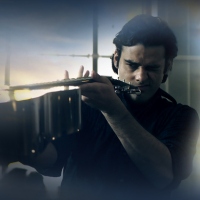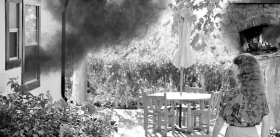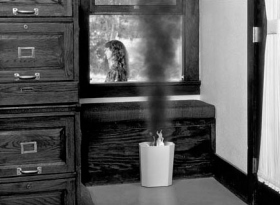If one has no familiarity with how a scene (area) ought to be, one cannot easily spot outpoints (illogical data) in it.
This is what also could be called an ideal scene or situation. If one doesn’t know the ideal scene or situation then one is not likely to observe nonideal points in it.
Let us send a farmer to sea. In a mild
Yet on a calm and pretty day he sees a
An experienced officer may attempt madly to avoid collision and all the farmer would think was that the officer was being impolite! The farmer, lacking any familiarity with the sea and having no ideal as to what smooth running would be, would rarely see real outpoints unless he drowned. Yet an experienced sailor, familiar with the scene in all its changing faces sees an outpoint in all small illogicals.
On the other hand, the sailor on the farm would completely miss disease in the wheat and an open gate and see no outpoints in a farm that the farmer knew was about to
The rule is:
A PERSON MUST HAVE AN IDEAL SCENE WITH WHICH TO COMPARE THE EXISTING SCENE.
If a staff hasn’t got an idea of how a real organization should run, then it misses obvious outpoints.
One sees examples of this when an experienced organization executive visiting an organization tries to point out to a green staff (which has no ideal or familiarity) what is out. The green staff grudgingly fixes up what he says to do but lets go of it the moment he departs. Lacking familiarity and an ideal of a perfect organization, the
The consequences of this are themselves illogical. One sees an untrained executive firing all the producers and letting the bad hats (corrupt or worthless people) alone. His erroneous ideal would be a quiet organization, let us say. So he dismisses anyone who is noisy or demanding. He ignores statistics. He ignores the things he should watch merely because he has a faulty ideal and no familiarity of a proper scene.
Observation Errors
When the scene is not familiar one has to look hard to become aware of things. You’ve noticed tourists doing this. Yet the old resident “sees” far more than they do while walking straight ahead down the road.
It is easy to confuse the novel with the “important fact.” “It was a warm day for winter” is a useful fact only when it turns out that actually everything froze up on that day or it indicated some other outpoint.
Most errors in observation are made because one has no ideal for the scene or no familiarity with it.
However there are other error sources.
“Being reasonable” is the chief offender. People dub in (presume or have a false,
It is horrifying to behold how easily people buy
Accurate Observation
There are certain conditions necessary for accurate observation.
First is a means of perception whether by remote communication by various
Second is an ideal of how the scene or area should be.
Third is familiarity with how such scenes are when things are going well or poorly.
Fourth is understanding pluspoints or rightnesses when present.
Fifth is knowing outpoints (all types) when they appear.
Sixth is rapid ability to analyze data.
Seventh is the ability to analyze the situation.
Eighth is the willingness to inspect more closely the area of
Then one has to have the knowledge and imagination necessary to handle.
One could call the above the cycle of observation. If one calls handle number nine it would be the Cycle of Control. If one is trained to conceive all variations of outpoints (illogics) and studies up to conceive an ideal and gains familiarity with the scene or type of area, his ability to observe and handle things would be considered almost supernatural.
a blowing of the wind, which could range from a mild blow with wind speeds of about 35 miles per hour (50 kilometers per hour) to much stronger winds with speeds as high as about 60 miles per hour (90 kilometers per hour).
a large ship for carrying goods from one place to another.
to turn the propellers of a ship in a reverse direction at full speed, so as to come to a full stop (when the ship has been moving forward). Astern comes from a, meaning to and stern, meaning the rear part of a ship. A large ship moving at a speed equivalent to 20 miles per hour (32 kilometers per hour) takes about 2,400 feet (732 meters) to stop (nearly 2/3 of a mile, or 1 kilometer) in approximately 4 minutes. A ship has no brakes so must reverse the propellers in order to come to a stop. This maneuver may be used if a ship is in danger of colliding with something, such as another ship.
fail completely.
lacking training or experience.
of the nature of a delusion; false; unreal.
presume or have a false, delusory perception of. Dub-in is a term used to characterize vision or recall which is imaginary. The term comes from the motion-picture industry. To “dub,” in moviemaking, is to create and add sounds to a picture after filming is complete. This process (“dubbing”) results in a fabricated soundtrack that seems to the audience like it actually took place when filmed. But in fact, much, or all of it, was created in the studio long after filming was finished, and was then “dubbed in.” Hence, dub-in is something put there that seems like it happened, but in reality it did not.
the route along which a communication travels from one person to another.
a condition or instance of something being wrong, incorrect or missing.


